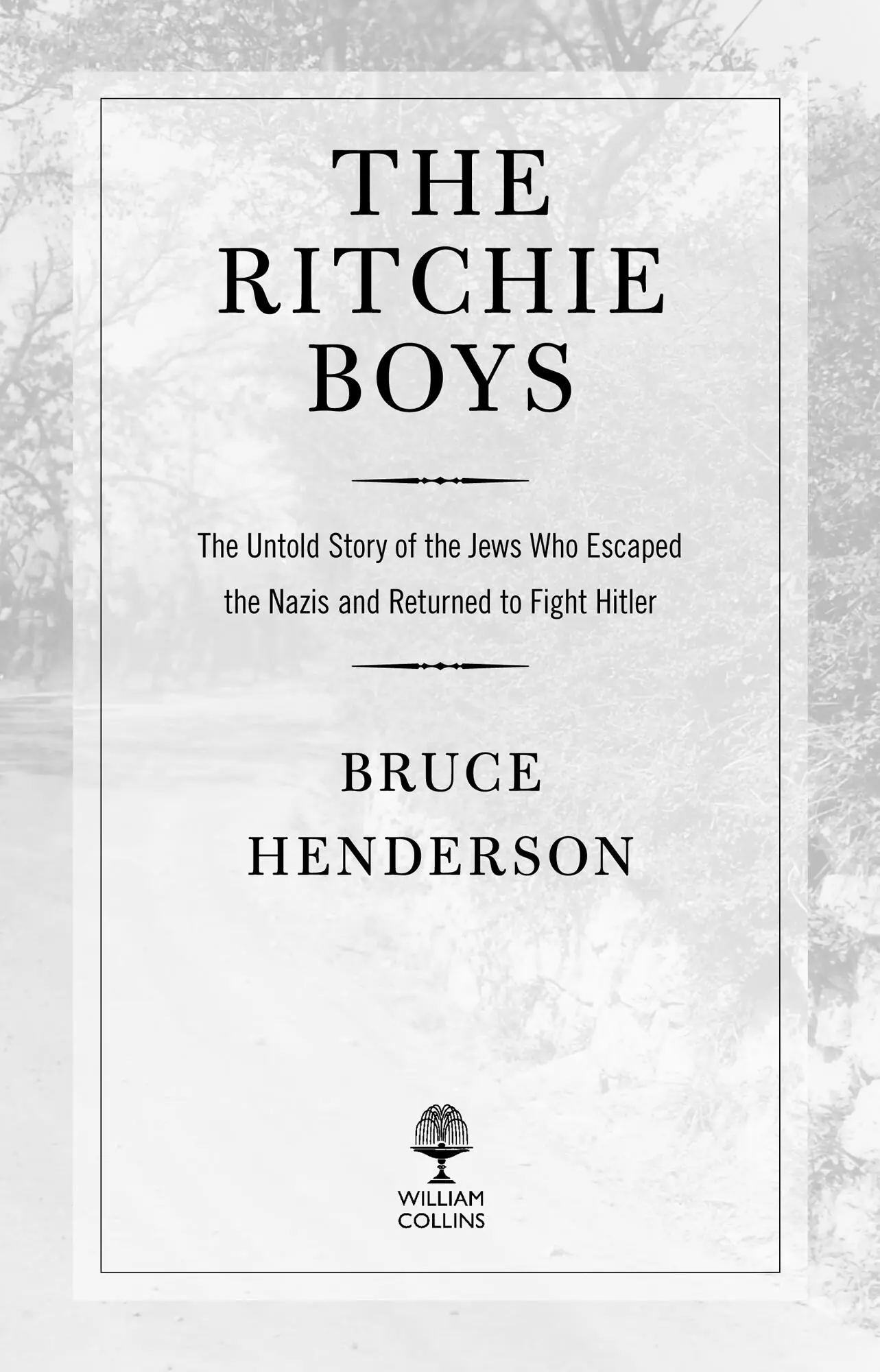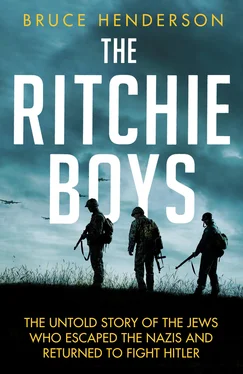
William Collins
An imprint of HarperCollins Publishers 1 London Bridge Street London SE1 9GF www.WilliamCollinsBooks.com
This eBook first published in Great Britain by William Collins in 2017
Previously published as Sons and Soldiers
First published in the United States by William Morrow in 2017
Copyright © Bruce Henderson 2017
Cover photograph © Stephen Mulcahey
Bruce Henderson asserts the moral right to be identified as the author of this work
A catalogue record for this book is available from the British Library
All rights reserved under International and Pan-American Copyright Conventions. By payment of the required fees, you have been granted the non-exclusive, non-transferable right to access and read the text of this e-book on-screen. No part of this text may be reproduced, transmitted, down-loaded, decompiled, reverse engineered, or stored in or introduced into any information storage and retrieval system, in any form or by any means, whether electronic or mechanical, now known or hereinafter invented, without the express written permission of HarperCollins
Source ISBN: 9780008180478
Ebook Edition © July 2017 ISBN: 9780008180492
Version: 2018-04-20
For them all

Cover
Title Page
Copyright
Dedication
Introduction
Prologue: Germany 1938
PART ONE
1. Saving the Children
2. Escaping the Nazis
3. A Place to Call Home
PART TWO
4. Camp Ritchie
5. Going Back
6. Normandy
7. The Breakout
8. Holland
9. The Forests
10. Return to Deutschland
PART THREE
11. The Camps
12. Denazification
13. Going Home
Dramatis Personae
Acknowledgments
Sources
Appendix: The Ritchie Boys
Bibliography
About the Author
Also by Bruce Henderson
About the Publisher
When Hitler came to power in Germany in 1933, he declared war on his country’s half million Jewish citizens. They were stripped of their most basic rights. Judaism was defined as a race, not a religion, and Jews were excluded from German citizenship. Restrictive edicts put in place by the Nazis affected Jews of all ages and in all walks of life, and even Jewish children were forced out of public schools. A harsh reality for German Jews was the growing realization that neither they nor their children had a future in the country. This fear culminated in November 1938 with Kristallnacht, known as the “Night of Broken Glass,” when Jewish homes, businesses, and synagogues were ransacked by Nazis. Nearly a hundred Jews were killed that night, and up to thirty thousand were arrested and sent to concentration camps, where hundreds of them died within weeks of their arrival. Though by then tens of thousands of German Jews had already immigrated to the United States, this was the final confirmation anyone required that Germany was no longer safe for Jews.
But departing meant leaving behind their ancestral home, relatives, friends, and life savings, and there was no guarantee they would be able to get past restrictive U.S. immigration quotas, and those in other countries, which made it difficult for more Jews to immigrate.
It was often impossible for an entire family to get out of Germany, and many faced an excruciating decision of splitting up, perhaps forever, when parents discovered they could get only one child, under age sixteen, to safety through the efforts of Jewish relief organizations in America and England. Who went and who stayed often meant the difference between life and death. By the time Germany went to war with the United States in 1941, the Nazis’ determination to create an Aryan Germany had switched from a policy of forced Jewish emigration to one of mass annihilation of those Jews still in the country and the millions of other Jews trapped in Nazi-occupied territories, solving what Hitler called the “Jewish problem.”
Many parents chose to send away their eldest sons so they might carry on the family name. Throughout Germany, there were heartbreaking farewells at railway stations and seaports where mothers and fathers said good-bye to their sons. Those German Jewish boys who arrived in America in the 1930s without their parents or siblings had to adapt to life in a new land on their own. Placed in the homes of distant relatives or foster families, they enrolled in public schools and immersed themselves in a language, culture, and world unfamiliar to them. But with the help of dedicated teachers and new friends, they quickly became Americanized, although still carrying the telltale accents from their homelands.
Yet they were served well by the Old World values instilled in them by their parents, emphasizing education and hard work. By the time the United States entered the war, these beloved sons who had been sent to America by their desperate families were stalwart young men who loved everything about U.S. democracy and freedom. They were also eager to return to Europe with the U.S. military to fight Hitler, not only out of patriotism for their new country, but their own personal vendetta as well. Unlike many other victims of the Nazis, the German Jewish refugees who became American soldiers had a means to help destroy the regime that had persecuted them and their families.
But there was a snag. When Germany declared war on the United States in December 1941, German citizens residing in America were automatically declared “enemy aliens.” Even after Congress passed legislation allowing enemy aliens to be inducted into the army, some found themselves assigned to U.S. bases where they were mistrusted and their accents ridiculed by other GIs.
War planners in the Pentagon soon realized that the German Jews already in uniform knew the language, culture, and psychology of the enemy best and had the greatest motivation to defeat Hitler. By mid-1942, the army began molding them into a top secret, decisive force to help win the war in Europe. Over the next three years, thirty-one eight-week sessions were held at Camp Ritchie in Maryland, consisting of extensive classroom work and field training. The largest group of graduates was 1,985 German-born Jews trained to interrogate German POWs. They were fast-tracked for U.S. citizenship and sent overseas with all the frontline units fighting the Germans. The Ritchie Boys, as they came to be known, had no idea what they would find when they returned to Europe. Many still did not know what had happened to their families that had sent them away to safety in America.
The Ritchie Boys follows a group of Ritchie Boys from their boyhoods in Germany, to their escapes to America, to their return to Europe as U.S. soldiers to fight in a war that for them was intensely personal. They parachuted with the airborne forces on D-Day, landed at Omaha Beach, raced with Patton’s tanks across occupied France, and fought in the Battle of the Bulge, Hitler’s last desperate gamble to win the war. They then crossed into Germany with the Allied armies and were with the forces that entered the Nazi concentration camps, where they saw with their own eyes the horrors of the Holocaust. When the shooting finally ended, it was time for these sons to look for the families they had left behind.
Читать дальше














